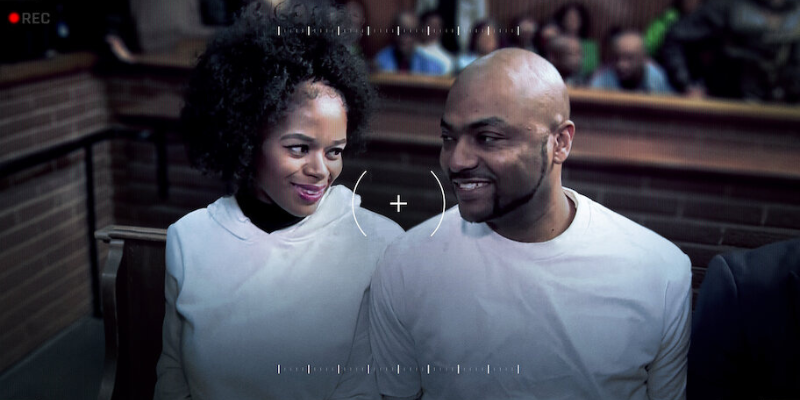Alakada: Bad & Boujee is the second sequel in the Alakada franchise, produced by Toyin Abraham, and it takes us back into the whirlwind life of Yetunde, a girl who still can’t seem to shake her obsession with living a life that simply isn’t hers.
This time around, Yetunde’s hustle is tied to her brother and a flashy social media philanthropist with secrets that could cancel anyone’s “soft life” in seconds. Premiered in cinemas last year, this installment promises drama, clout-chasing, comedy, and chaos, but did it deliver? Let’s find out.
Plot
The movie opens with pure chaos, a good old-fashioned Lagos street fight. But beyond the wahala and shouting, a big name is entering the scene: Madam Sharon. A popular social media philanthropist, she’s pulling up to the street where Yetunde, Rebecca, Abebi, and the rest of the crew live. She’s handing out food and promising employment for the next five years. It seems generous, almost too generous.
Yetunde is still neck-deep in her signature delusion. Online, she’s a rich kid, daughter of a billionaire, and a certified nepo baby. But in reality? Her dad is struggling, her family is poor, and her father works in an abattoir. Still, she’s determined to fake it till she makes it. She even goes so far as to call Rebecca her “PR Manager” and Abebi her “PA” just to keep the illusion alive.
She jumps from one shady connection to another, trying to land deals that constantly fall through. Her family, especially her brother and dad, are disappointed in her antics. Her brother warns her that one day, she’ll need people to believe her, and no one will because of the fake life she keeps living.
Meanwhile, Yetunde’s younger sister is dating a well-off fraudster who showers Yetunde with gifts, money, and even international passports — but behind closed doors, he’s physically abusive. Yetunde turns a blind eye to the abuse, focusing only on the perks she can get from her sister’s toxic relationship.
Then comes an opportunity: a genuine philanthropist offers Yetunde and her girls a chance to travel to Cotonou for a potential partnership. Rebecca is excited; it’s finally a real shot at escaping their struggle. But Yetunde, more obsessed with clout and appearances than the actual grind, ruins it by lying and pretending yet again. The philanthropist catches her red-handed, and her friends cut her off, choosing real growth over delusions.
Now, things get dark. Yetunde’s brother, desperate to make money, is secretly working for Madam Sharon. While Sharon looks like a saint online, offline, she runs a sinister organ trafficking operation. Under the guise of “employment offers,” she kidnaps young women, harvests their organs, and disposes of them without a trace. Her public image is flawless, but her private reality is bloodstained, literally.
One night, Yetunde is invited to a high-profile party. In typical Alakada fashion, she borrows a designer outfit from a local boutique plug and shows up to slay. But while snooping around the venue, she stumbles into a room she shouldn’t have entered, and what she sees is horrifying: blood, a victim, and Madam Sharon in the middle of it all. In panic, she tries to escape but is caught by her own brother.
The truth hits hard. Her brother is involved in the very madness she just discovered. In a desperate attempt to save her, he fights back and is killed in the process.
The next morning, Sharon goes public with a lie, claiming Yetunde’s brother died in a boat accident. No one questions her. Now, Yetunde wants revenge. But just like her brother predicted, no one believes her. She’s the girl who cried “soft life” too many times. Her credibility is gone.
The turning point? A local vendor, the woman who always lends Yetunde her glam outfits , happens to have been dating Sharon’s right-hand man. Through that connection, Yetunde finally finds the leverage she needs to expose Madam Sharon’s evil deeds to the world.
Cast
The casting in Alakada: Bad & Boujee felt excessive and disjointed. With every new scene, there seemed to be a new face, often a celebrity cameo with no real impact on the story. This constant rotation of characters made the film feel crowded and directionless. Many of the cast members appeared only once, without contributing meaningfully to the plot, making their inclusion feel more like a star-studded roll call than purposeful storytelling.

It featured Toyin Abraham Ajeyemi, Bimbo Ademoye, Lizzy Jay , Ini Edo, Kolawole Ajeyemi , YhemoLee, Okunsanya Lolade, IsBae U, Bimbo Akintola, Odunlade Adekola and many others.
Though the film featured some strong actors, their performances were watered down by weak scripting and an underdeveloped storyline. The talent was there, but it wasn’t well-utilised. Instead of driving the narrative forward, the cast was left floating in isolated scenes that lacked cohesion, connection, or consequence. In essence, the movie relied more on faces than finesse.
Language
The movie blends English, Yoruba, and Pidgin so seamlessly, it mirrors the chaos and comedy of Nigerian street life.
Final take
Alakada: Bad & Boujee struggles to land on any solid ground. The film was chaotic, noisy, and lacked a clear direction. It seemed to aim for depth, humour, and commentary, but fell flat in almost every regard. The plot was skeletal at best, and even the climactic final scene, a massacre that should’ve been impactful, came off as overly dramatic and disconnected.
It’s hard to pin down the central message because the film itself felt unsure of what it wanted to say. Rather than presenting a unified, engaging story, it delivered scattered moments that failed to build into anything meaningful. Ultimately, it came across more like an attempt to sell tickets and feature big names than a sincere effort to tell a compelling story.
In short: the movie was boring, directionless, and chaotic, an unserious take on a potentially rich premise.
















